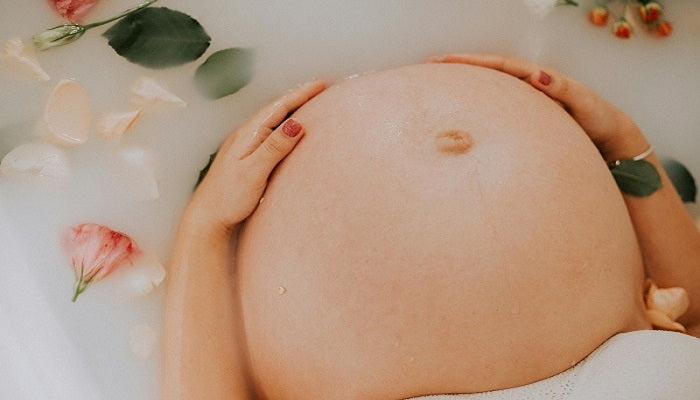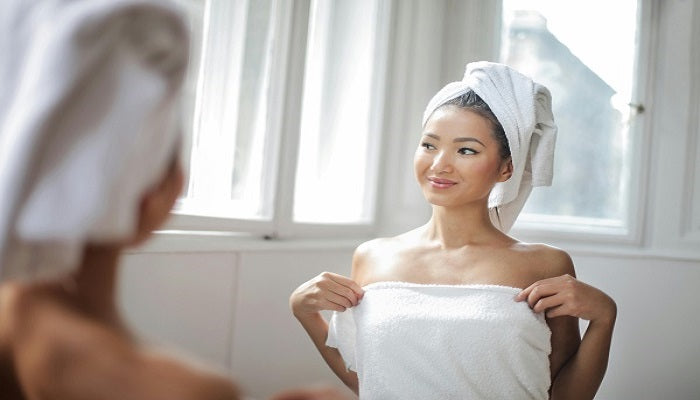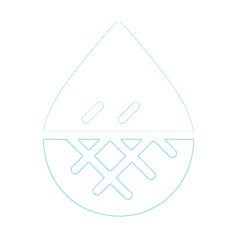Introduction:Can You Take a Bath While Pregnant? Here’s What You Should Know
Pregnancy opens up a whole new chapter in your life—and in your body. Suddenly, your senses become more sensitive, your skin feels drier or itchier, and your emotions ride waves you never expected. By the end of the day, all you want is a warm, soothing shower to melt away the fatigue, ease your swollen feet, and take a moment to just breathe. But as you turn on the faucet, a thought crosses your mind:
“Is it still safe to take a bath now that I’m pregnant?”
You’re not alone—this is one of the most common questions expectant moms ask. A quick search will bring up the top query: “Can you take a bath while pregnant?”The good news is—yes, bathing is generally safe during pregnancy, as long as you follow some basic precautions: keep the water warm, not hot; limit the time you soak; and make sure your bathroom is safe and well-ventilated.
But there’s one important factor many overlook: the quality of your water.
The tap water we use every day may contain chlorine, heavy metals, sediments, and other microscopic pollutants. While these might not cause noticeable issues for most people, pregnant women are especially vulnerable. With heightened skin sensitivity and rapidly changing hormone levels, these impurities can trigger dry skin, rashes, or worsen scalp conditions.More critically, pregnancy is a key time for your baby’s development—and reducing exposure to harmful substances is essential.
In this article, we’ll cover:
- Safety tips for bathing during pregnancy
- Whether hot tubs or long soaks are safe
- Why filtering your water matters more during pregnancy
- How a filter shower head can help protect both you and your baby
You deserve a bath that feels not just relaxing—but safe, clean, and gentle. Let’s explore how to create a healthier shower routine for your pregnancy journey.

Is It Safe to Take a Bath While Pregnant?
Absolutely — but it’s all about bathing safely and gently.
Pregnancy is one of the most transformative and hopeful times in a woman’s life, but it also brings rapid physical changes and emotional challenges. From fluctuating hormones to morning sickness, mood swings, and body aches, it’s no wonder many moms-to-be feel drained by the end of the day. That’s why a warm bath or shower often becomes a simple yet powerful way to relax, unwind, and soothe tired muscles.
But here’s the key: “warm” doesn’t mean hot. While a hot bath may feel comforting, it could come with risks — for both you and your baby.
Why High Water Temperatures Are a Concern
Soaking in overly hot water can raise your core body temperature. If your temperature goes above 102.2°F (39°C) — especially in the first trimester, when the baby’s organs are forming — it may increase the risk of neural tube defects and other complications. Hot baths can also cause your blood pressure to drop, potentially reducing blood flow to the placenta. This might lead to dizziness, nausea, or even fainting — which could result in dangerous falls.
Long Baths and Bath Products: Hidden Risks
While a bath may feel like a treat, spending too long in warm, steamy water can increase the risk of infections. During pregnancy, your immune system is more sensitive, making it easier to develop vaginal or urinary tract infections. Bath bombs, bubble baths, and scented soaks often contain fragrances, dyes, and chemicals that disrupt your vaginal pH and may lead to irritation or yeast infections.
Additionally, hot tubs, saunas, and steam rooms should be avoided altogether. These environments stay consistently hot and may cause your body to overheat without you even realizing it, leading to potential dehydration or heat-related complications.
Safe Bathing Tips During Pregnancy
Here are a few simple guidelines to enjoy your bath safely during pregnancy:
- Keep the water temperature under 100°F (37.8°C) — ideally between 85°F and 95°F (29.5–35°C).
- Limit your bath or shower time to 15 minutes or less.
- Avoid harsh or heavily fragranced bath products.
- Test the water with your elbow or forearm — these areas are more heat-sensitive than your hands.
- Use a bath thermometer for extra peace of mind.
Whenever possible, choose a warm shower over a hot soak, and consider installing a filtered showerhead. It can help remove chlorine, heavy metals, and other irritants from your water — creating a gentler bathing experience for your skin, your scalp, and your growing baby.

The Hidden Effects of Hard Water and Chlorine: What Are You Absorbing in the Shower?
Taking a shower may seem like a simple, everyday routine—but have you ever wondered what your body is actually absorbing while the warm water flows and steam fills the air?
Let’s start with hard water.
Hard water refers to water that contains high levels of minerals, especially calcium and magnesium. According to the U.S. Geological Survey (USGS), over 80% of homes in the U.S. have hard water—some areas even have levels considered extremely hard. While these minerals sound natural and harmless, they can have unexpected effects when they interact with your skin.
Hard water can clog pores and strip away your skin’s natural oils, leaving it feeling dry, tight, and itchy. Over time, this may lead to irritation, rashes, or even breakouts. For those with sensitive skin—including expectant mothers—these symptoms can become even more pronounced, especially in delicate areas like the belly or chest.
Another hidden concern? Chlorine.
Most U.S. tap water is treated with chlorine or chloramine to kill bacteria and other harmful microorganisms. While this helps keep your drinking water safe, chlorine doesn’t just disappear when it reaches your shower—it lingers. And when it comes into contact with your skin, it can be surprisingly harsh.
Chlorine strips away your skin’s protective barrier, leaving it dry and prone to inflammation. It can also damage your hair by raising the hair cuticle, leading to dullness, brittleness, and split ends. For pregnant women, whose skin is already more vulnerable due to hormonal shifts, chlorine exposure can amplify dryness and sensitivity even more.
The concerning part? All of this can happen without you noticing. That peaceful shower you take to relax might actually be stressing your skin and hair more than you realize.

How Pregnancy Changes Your Skin—and Why Water Quality Matters
Pregnancy is a beautiful journey—but also a highly sensitive one. Within just a few weeks, many women notice unexpected changes in their skin: dryness, heightened sensitivity, red patches on the face, arms, or belly, and even itchiness that disrupts sleep. These are not rare occurrences—they’re incredibly common challenges shared by moms-to-be everywhere.
During pregnancy, your hormone levels shift dramatically. Estrogen, progesterone, and cortisol all rise, affecting not just your mood and physical state, but also your skin. Even if you’ve always had stable, healthy skin, it might suddenly become dry, reactive, or prone to irritation. This is your body’s natural response to the internal changes it's going through.
At the same time, oil production decreases and your skin loses moisture more quickly, which can lead to tightness, flaking, or even cracking. Your immune system also adjusts to support your growing baby, and this change can make you more prone to conditions like eczema, rashes, and allergic reactions.
While many expecting moms invest in gentle, fragrance-free skincare, they often overlook something just as important: the water they use in the shower. And this water—your skin’s first point of contact each day—can have a much bigger impact than you think.

What’s Really in Your Water?
Tap water may look clean, but for pregnant women with more delicate skin, what’s inside can be a hidden trigger for irritation. Most household water in the U.S. contains chlorine, hard water minerals like calcium and magnesium, and trace amounts of heavy metals. While these might not be a concern for the average person, they can spell trouble for sensitive pregnancy skin.
- Chlorine – Used in municipal water systems to disinfect and kill bacteria, chlorine is highly effective—but it’s also a skin irritant. Prolonged exposure can strip your skin’s natural oils, causing dryness, tightness, or even eczema-like symptoms. It can also irritate your eyes and lungs, especially during steamy showers.
- Hard Water Minerals – Calcium and magnesium don’t just leave residue on your shower head—they can bond with soap to form a film on your skin that clogs pores and disrupts your skin’s natural oil balance. The result? Itchiness, flaking, and increased sensitivity.
- Heavy Metals (like lead and copper) – Even in small doses, these can cause chronic irritation. And with your immune system in a delicate state, your skin may react more strongly than usual to these microscopic invaders.
The Power of Filtered Water During Pregnancy
That’s why improving your water quality can be just as important as switching to gentle skincare products. Using a high-performance filtered showerhead can offer significant relief by:
- Removing chlorine and heavy metals to reduce oxidative stress on the skin
- Softening water by reducing calcium and magnesium content
- Lowering the risk of itchiness, redness, and allergic flare-ups
- Creating a gentler, safer cleansing environment for your sensitive skin
What you really need isn’t just another lotion or cream—it’s protection that starts at the source. Because if your skin’s first contact each day is with irritating, chemical-laden water, no skincare routine can truly do its job.
That’s why more and more expectant moms are switching to filtration shower head during pregnancy. It’s a small change with big impact—turning your daily shower into a true moment of comfort, healing, and restoration.
And especially in the second and third trimesters, when showers become more frequent and your body needs more care, filtering your water isn’t just about self-care—it’s a way of caring for your baby, too.

Why Use a Filtered Shower Head During Pregnancy?
During pregnancy, every mom-to-be becomes more mindful of the little things—what you eat, what products you use, and how your daily environment might affect your baby. You may have already swapped out skincare with fragrance or alcohol, and started reading ingredient labels on food. But there’s one everyday exposure many people overlook: the water you shower with.
Though it seems harmless, your shower water may be a hidden source of chemical exposure—something especially important to reduce during pregnancy.
Reduce Daily Chemical Exposure, Right at the Source
Reducing chemical exposure is one of the most effective ways to support a healthy pregnancy. Yet most municipal tap water contains chlorine, heavy metals like lead and mercury, and other trace contaminants.
Filter head showers — especially those using activated carbon or KDF filters—can significantly lower your exposure to:
- Chlorine, which can damage your skin barrier and release vapors when heated, potentially entering the body through inhalation or skin absorption
- Heavy metals, which may irritate the skin or contribute to long-term exposure concerns
- Sediment and microparticles that may aggravate already-sensitive skin
Soothe Dryness, Itching & Pregnancy-Sensitive Skin
Hormonal changes during pregnancy naturally make your skin more delicate. Many expectant mothers experience dryness, tightness, itchiness, or even eczema. If your water is hard or contains chlorine, those issues can become even worse.
By removing harsh minerals and chemicals, filtered water feels softer and is gentler on your skin, helping:
- Relieve dryness and itchiness
- Maintain moisture and elasticity
- Reduce irritation from daily showers
For moms with sensitive skin, it’s a simple but impactful upgrade to your routine.
Breathe Easier, Bathe More Comfortably
Pregnancy often heightens sensitivity to smells and heat. Chlorine vapor, especially in hot showers, can trigger headaches, nausea, or mild respiratory discomfort for some pregnant women.
A filtered shower head can minimize chlorine fumes and harsh odors, making your shower a calmer, more relaxing experience. That’s not just a comfort—it’s part of creating a more supportive daily routine for your changing body.
Create a Safer, Cleaner Environment for Your Baby
Experts agree: minimizing exposure to harmful substances during pregnancy helps support healthier fetal development. Swapping your regular shower head for a filtered one is a small step—but one that removes a common, under-the-radar chemical source.
After all, water touches your body more than any skincare product. Choosing a cleaner, safer way to shower isn’t just good for you—it’s a gentle and powerful way to care for your growing baby, too.

How to Choose a Pregnancy-Safe Filtered Shower Head
With so many filtration shower head on the market, it can be overwhelming to choose the right one—especially during pregnancy. For moms-to-be, the right choice goes beyond basic filtration. You want a product that combines effective purification with safe materials, a gentle shower experience, and long-term ease of use.
Look for Trusted Certifications and Advanced Filtration Technology
Start by choosing a product certified by reputable organizations like NSF or WQA, which ensures reliable removal of chlorine, heavy metals, and other impurities. Also pay close attention to the filtration materials. For example, AquaNurture uses a dual-filtration system combining KDF-55 and Calcium Sulfite—two of the most effective technologies for chlorine removal. This combination works well in both hot and cold water, offering consistent protection. It not only filters out harmful contaminants like lead and mercury but also helps retain skin-friendly trace minerals—creating a purer, more nourishing shower experience.
Comfort Matters Too—Especially During Pregnancy
Showering during pregnancy isn’t just about staying clean—it’s also a chance to relax and unwind. A good shower head should provide a strong yet gentle water flow, even in low-pressure environments. AquaNurture features a built-in pressure-boosting system to ensure a powerful, consistent stream that mimics the feel of a spa treatment. With three adjustable spray modes—PowerJet for a deep cleanse, RainFlow for a refreshing rinse, and MistSpa for a soft, skin-soothing experience—you can customize your shower to match your mood or needs throughout the day.
Wider Coverage for Full-Body Comfort
Many standard shower heads have small spray faces that deliver concentrated water flow, which can feel harsh on sensitive skin. In contrast, AquaNurture’s 7-inch wide spray face offers broader, more even coverage. This helps distribute water more gently across the body, reducing localized pressure and irritation—perfect for pregnancy-sensitive skin.
Replace Filters Regularly for Lasting Protection
Even the best filtration system needs regular upkeep. Choose a product with clearly defined filter life (typically every 3 to 6 months) and easy replacement to ensure ongoing protection. AquaNurture’s filter replacement process is simple and hassle-free, so you can maintain clean, safe water with minimal effort.
In short, choosing a pregnancy-safe shower head is more than a comfort upgrade—it’s a proactive way to reduce daily chemical exposure, protect your skin barrier, and support a cleaner environment for your baby. AquaNurture brings together effective filtration and a luxurious shower experience to give you peace of mind every time you step into the water.
Let me know if you'd like a version that's shorter for social media, or more technical for a product brochure!
Final Thoughts:Bathe Safely, Bathe with Peace of Mind
Yes—pregnant women absolutely can take baths and showers. But while water temperature often gets all the attention, it’s the quality of the water that deserves long-term focus.
Bathing is more than a routine—it’s a daily ritual of self-care. For moms-to-be, that quiet moment in the shower can be a chance to relax tense muscles, reduce swelling, improve sleep, ease aches and pains, and even help regulate amniotic fluid levels. As long as you follow a few simple guidelines—keep the water warm, not hot; avoid long soaks; and make sure the floor is slip-resistant—showering during pregnancy isn’t just safe, it can be incredibly beneficial.
But here’s the part that’s often overlooked: What’s in your water matters. We come into contact with water far more often than we realize—multiple times a day. And hidden within that water may be invisible substances like chlorine, heavy metals, and hard water minerals that can impact your skin, your lungs, and potentially even your baby’s environment.
That’s why investing in a high-quality filtered shower head is such a smart, protective step. It’s a small switch that can make a big difference—helping reduce chemical exposure, soothe sensitive skin, and create a cleaner, more nurturing space for you and your growing baby.
Taking care of yourself is taking care of your baby.
So let each shower become more than a habit. Let it be your daily act of love, your quiet moment of strength, and your gentle gift to the new life you’re bringing into the world.

FAQs:Common Questions About Bathing During Pregnancy
Q1: Can I take a shower or bath every day while pregnant?
Absolutely. Daily bathing is safe and beneficial during pregnancy—as long as you use warm (not hot) water, ideally under 100°F (38°C), and keep your showers or baths short (10–15 minutes). It helps maintain hygiene, reduce swelling, and relax your body and mind.
Q2: Are there any water quality issues I should avoid during pregnancy?
Yes. It's best to avoid water that contains high levels of chlorine, heavy metals, or hard water minerals, as these can irritate sensitive pregnancy skin and may even be absorbed through the skin or lungs. A filtered showerhead can significantly reduce your exposure to these harmful substances.
Q3: Is taking a hot bath dangerous for the baby?
It can be. Soaking in water that’s too hot—typically over 102°F (39°C)—can raise your core body temperature, which may increase the risk of neural tube defects and other complications. It's safest to avoid hot tubs and very hot baths during pregnancy.
Q4: Do I really need a filtered showerhead while pregnant?
Yes, especially if you’re experiencing dryness, itchiness, or skin sensitivity. A filtered showerhead helps remove chlorine, scale buildup, and other irritants, making your showers gentler and more comfortable throughout your pregnancy.
Q5: Is it safe to shower during the third trimester?
Definitely—but take extra precautions. As your belly grows and balance shifts, slip prevention becomes even more important. Use non-slip mats, consider a shower stool for added support, and make sure someone at home knows you’re in the shower—just in case you need assistance.








Leave a comment
This site is protected by hCaptcha and the hCaptcha Privacy Policy and Terms of Service apply.